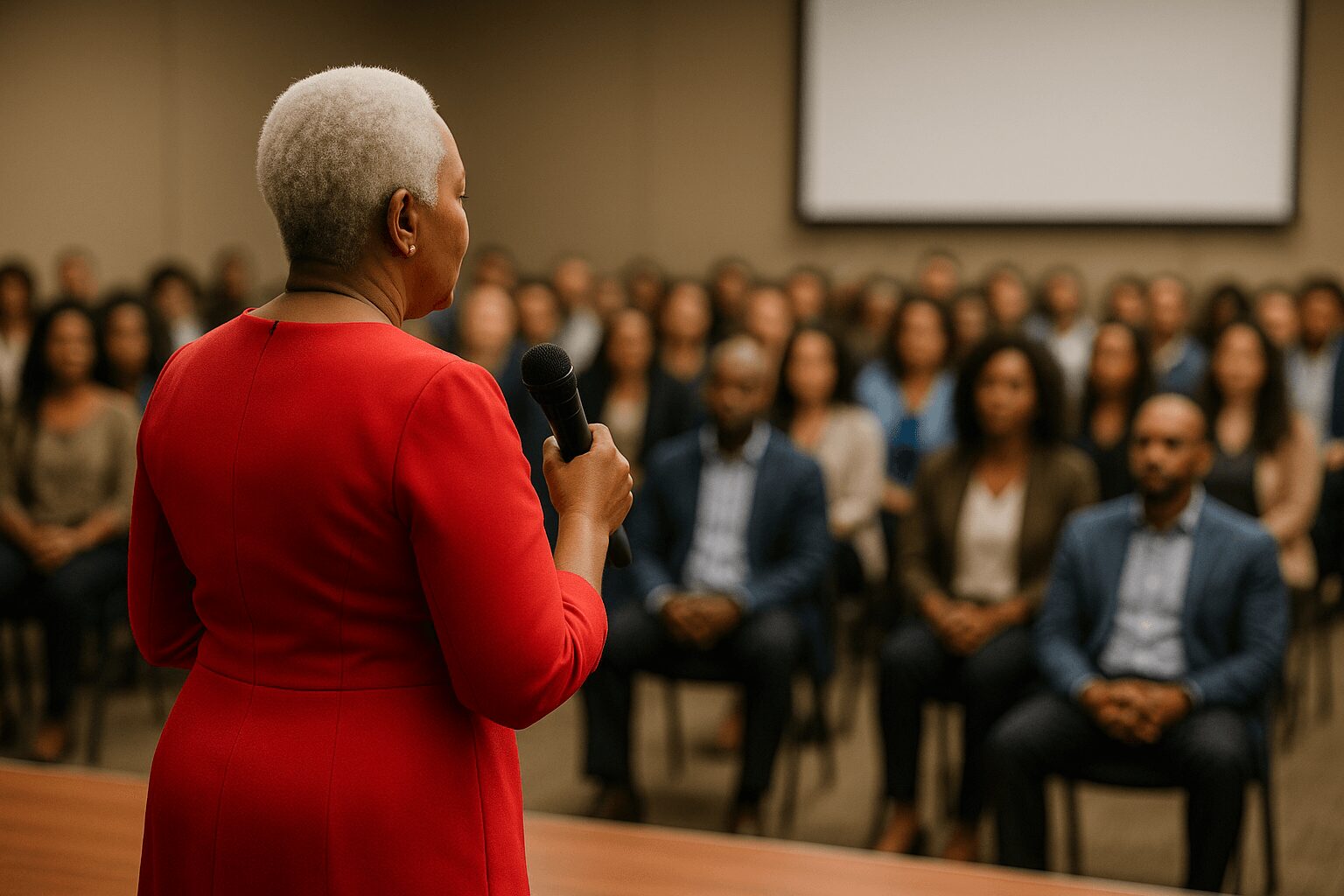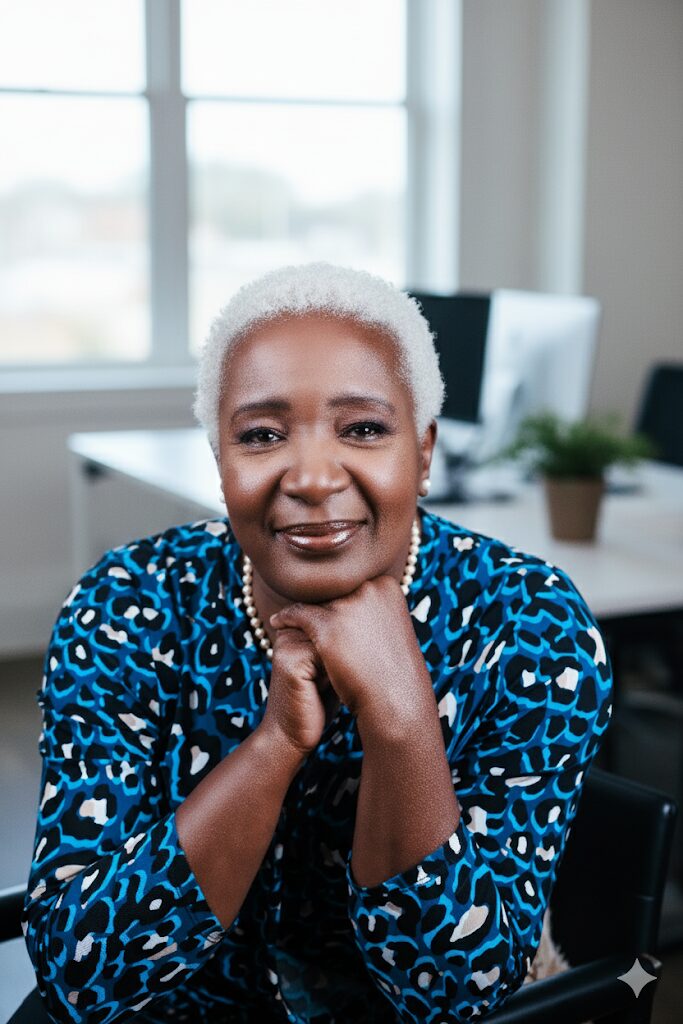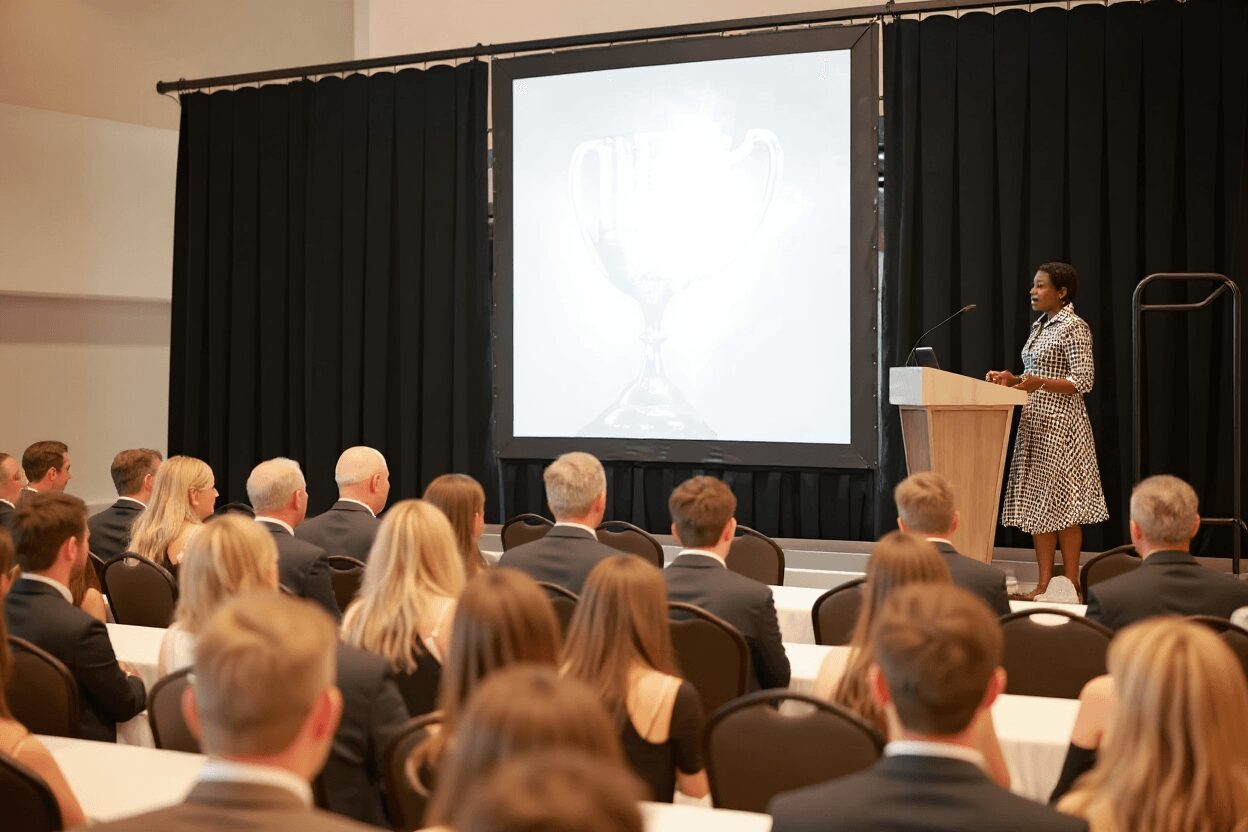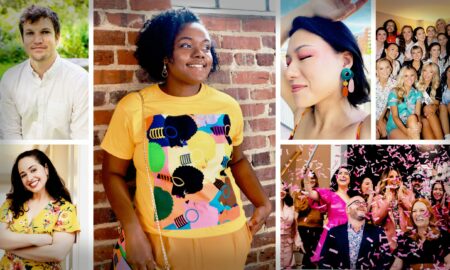

Today we’d like to introduce you to Glenda Clare.
Hi Glenda, please kick things off for us with an introduction to yourself and your story.
I was raised in the South Bronx by parents who believed deeply in service, education, and the quiet dignity of hard work. My mother was a nurse who went back for her degrees while raising a family, and my father served first in law enforcement and later in affordable housing. I grew up watching two people who did not wait for change; they built it. Whether I realized it at the time or not, I was being shaped for a life of purpose.
The Bronx in the 80s was not an easy place to come of age. There were drugs on the corners, sirens at night, and danger close enough to touch. Still, I understood early that education would be my way forward. While some of my peers were hanging out after school, I was in the emergency room at Morrisania Hospital, volunteering in triage. I was sixteen, taking vital signs and doing intake during overnight shifts. I did not fully understand it then, but that experience exposed me to something I would spend my life returning to—human beings trying to survive hard moments.
College was supposed to be my launchpad, but life took an unexpected turn. During my sophomore year, I survived sexual assault, and it changed the trajectory of my life. I withdrew from school, lost focus, and carried trauma that had no name in my world at that time. But even in the darkest seasons, purpose has a way of finding you. I began volunteering at a rape crisis center—not because I was healed, but because helping others gave me the strength to reclaim my own life. That is where I learned an important truth: people are not broken—they are interrupted. With the right support, they can rise again.
I eventually returned to school, but financial reality forced me to take another path. I joined the United States Navy and became a Hospital Corpsman. I learned discipline, responsibility, and what service really means. When I later transitioned back into healthcare in civilian life, I worked in drug treatment and became part of the award-winning Adolescent AIDS Program at Montefiore Medical Center in the Bronx. That work immersed me in public health, prevention, and community healing.
But I also began to notice something that troubled me. Health and human service professionals often work in silos—seeing the same clients but rarely working together. Too often, professionals believe they have all the answers and forget to truly listen to the people they serve. Good intentions alone do not change lives. Skilled, well-supported professionals do.
That is what led me into counseling and later counselor education. Counseling programs were available in the evenings, which allowed me to keep working full-time. More importantly, counseling embraced a wellness model rather than a narrow medical one, and that aligned with what I believed about people. While working at Montefiore, I discovered a gift for teaching and training. I began developing workshops, training interdisciplinary teams, and eventually presenting at local, state, and national professional events. My work became rooted in building the capacity of human service professionals to serve people with competence, compassion, and cultural awareness.
My journey has not been linear. It has been shaped by lived experience, academic rigor, and real-world practice. It has taken me through systems that needed changing and into rooms where that change could begin. Every chapter—survival, military service, behavioral health, public health, counseling—prepared me for the work I do today: helping the people who help people.
I believe that healthy professionals build healthy families, and healthy families build healthy communities. My mission is to make sure the people who serve others do not lose themselves in the process.
Can you talk to us a bit about the challenges and lessons you’ve learned along the way. Looking back would you say it’s been easy or smooth in retrospect?
One of the hardest seasons of my life did not happen in a classroom, a boardroom, or even during my work in public health. It happened inside my own family. I became a kinship caregiver unexpectedly when I stepped in to raise my second cousin after the death of her grandmother, who had legally adopted her. I believed, perhaps naively, that her mother and I would work together to provide stability. Instead, I found myself navigating a painful reality: not every biological parent is emotionally or behaviorally ready to parent, even if they want to be. Her mother had a long history of substance use and incarceration, and while I hoped this situation would bring us together for the sake of her daughter, it often created the opposite. Cooperation turned into sabotage. Agreements turned into arguments. I eventually had to accept a difficult truth—sometimes love has to look like boundaries.
When I stepped in, my second cousin was on the brink of entering foster care. I knew what that could mean for her future—the instability, the trauma of separation, the emotional cost of system involvement. I could not let that happen, so I petitioned the court for guardianship. The judge granted it, but legal custody did not come with a manual. I had academic credentials, professional training, and years of experience working in complex human systems, yet none of that fully prepared me for parenting a child who carried layers of grief, loss, and trauma.
I learned to expect the unexpected—school calls, emotional meltdowns, hidden pain that showed up as defiance. There were days I felt like I was choosing between protecting her and protecting myself from burnout. Eventually I made a decision that few understood: I homeschooled her for two years. Not because I wanted to, but because I feared that without intervention, school suspensions would turn into juvenile detention. I saw the school-to-prison pipeline forming right in front of me, and I refused to let another Black child be pushed into it.
Parenting her changed me as a professional. I had been teaching resilience, trauma-informed care, and system navigation for years, but this journey forced me to live it in real time. I saw how hard it was to get services even when you know how the system works. I saw how professionals made assumptions about families without ever asking what they had already survived. I saw how policies could strip families of dignity.
That experience lit a fire in me that still burns today. It deepened my commitment to building the capacity of human service professionals—not just to follow policies and complete paperwork, but to see people, to hear them, and to stand with them. Raising my second cousin was one of the hardest things I have ever done, but it is also one of the reasons I do this work with both urgency and heart. Helping families is not just what I do. It is who I am.
Alright, so let’s switch gears a bit and talk business. What should we know?
When people ask me what I do, I always smile because the simple answer is this: I help the people who help people. Resilience Ready Counseling and Resilience Ready 360 were born from that mission.
Resilience Ready Counseling, formerly known as Think Possibilities Counseling Services, began as a traditional behavioral health practice, but it evolved into something far deeper. Over the years, I worked with clients who were not only navigating life challenges, but also carrying the emotional weight of broken systems—work stress, compassion fatigue, caregiver burden, moral injury, unresolved trauma, and burnout. I realized counseling alone was not enough. People did not just need therapy; they needed strategy, skills, and structure to build lives that were healthy, sustainable, and purpose-driven. So I redesigned the practice into what it is today: a resilience-centered clinical and coaching space grounded in whole-person well-being.
From there, Resilience Ready 360 was created as the training and workforce development branch of my work. While Resilience Ready Counseling supports individuals and small teams, Resilience Ready 360 expands that impact by equipping entire organizations. We provide professional development, resilience training, and capacity-building programs for those on the front lines of service—counselors, social workers, educators, healthcare teams, first responders, nonprofit staff, and human service agencies. Our signature frameworks, including Reflect–Realign–Rise and the 6R Resilience Framework, help organizations retain staff, reduce burnout, and improve service outcomes by strengthening the professionals behind the work. Unlike programs that speak only to emotional wellness, our approach blends emotional intelligence, trauma awareness, cultural responsiveness, and leadership development. We do not just tell people to take care of themselves; we teach them how to build resilience systems that preserve their purpose, performance, and peace.
I am equally proud of The Grandfamily Network, the nonprofit I founded to address a problem most people do not know exists: millions of children in this country are being raised by relatives—grandparents, aunts, uncles, and extended kin—after traumatic family crises. The system calls them “kinship caregivers,” but I call them heroes. My own experience as a kinship caregiver showed me the overwhelming barriers these families face: lack of legal support, emotional exhaustion, financial strain, and very little guidance. Most nonprofit programs only focus on traditional foster care, but The Grandfamily Network expands beyond the system to support all grandfamilies—whether they are formally recognized or not. We focus on three pillars: strengthening families, equipping professionals, and building community partnerships. We deliver training, family empowerment programs, advocacy, and capacity-building support for professionals who work with these families. The new name reflects the mission more powerfully: strong families build strong communities.
What sets my work apart—across both the business and nonprofit—is authenticity. This mission did not come from theory; it came from lived experience. I am not a distant consultant looking at problems from a spreadsheet. I have been on the front lines, in the homes, in the emergency rooms, in courtrooms, in schools, and in community systems where families and professionals are often overwhelmed and under-supported. I build practical solutions, grounded in humanity and shaped by real stories.
Resilience Ready is more than a brand. It is a commitment—to build strong people, strong families, strong organizations, and strong communities. And The Grandfamily Network is more than a nonprofit. It is a movement to make sure families who step up for children are never left to struggle in silence again.
What I want readers to know is simple: I do not believe in temporary fixes. I build capacity. I build people. And I do this work because change does not happen through programs alone—it happens through prepared people who are resilient, compassionate, and ready.
Alright so before we go can you talk to us a bit about how people can work with you, collaborate with you or support you?
My work sits at the intersection of resilience, workforce development, and family systems, and I welcome collaboration with people and partners who care about strengthening lives, organizations, and communities.
Individuals can work with me through Resilience Ready Counseling, where I provide resilience-focused counseling, professional coaching, and therapeutic support for those who serve others—leaders, caregivers, educators, clinicians, nonprofit professionals, and purpose-driven people who want to stay healthy while doing meaningful work. I also offer consulting for professionals who are navigating career transitions, life challenges, or leadership roles that require new levels of emotional strength and clarity.
Organizations, schools, agencies, and companies can partner with Resilience Ready 360 for workforce resilience training, professional development series, well-being strategy design, and trauma-responsive leadership coaching. I help teams reduce burnout, increase retention, and create people-first cultures where professionals feel seen, supported, and equipped to do their best work. My keynotes, workshops, and training programs are ideal for conferences, universities, human service agencies, behavioral health organizations, and professional associations.
For those who care about strengthening families, I also welcome collaboration through The Grandfamily Network. We are actively forming partnerships with universities, foundations, community organizations, service providers, and funders who believe in building capacity for kinship and grandfamily caregivers. People can support our mission by sponsoring programs, hosting trainings, serving as partners for caregiver support, or joining our movement as donors and advocates. We are especially seeking partners who understand that families do not heal in isolation—they heal in community.
There are three things I believe we can always do together: build people, solve problems, and move impact forward. Whether you are an individual seeking support, a leader ready to invest in your team, or a partner committed to changing systems with us—I am open to meaningful collaboration that drives real change.
Contact Info:















